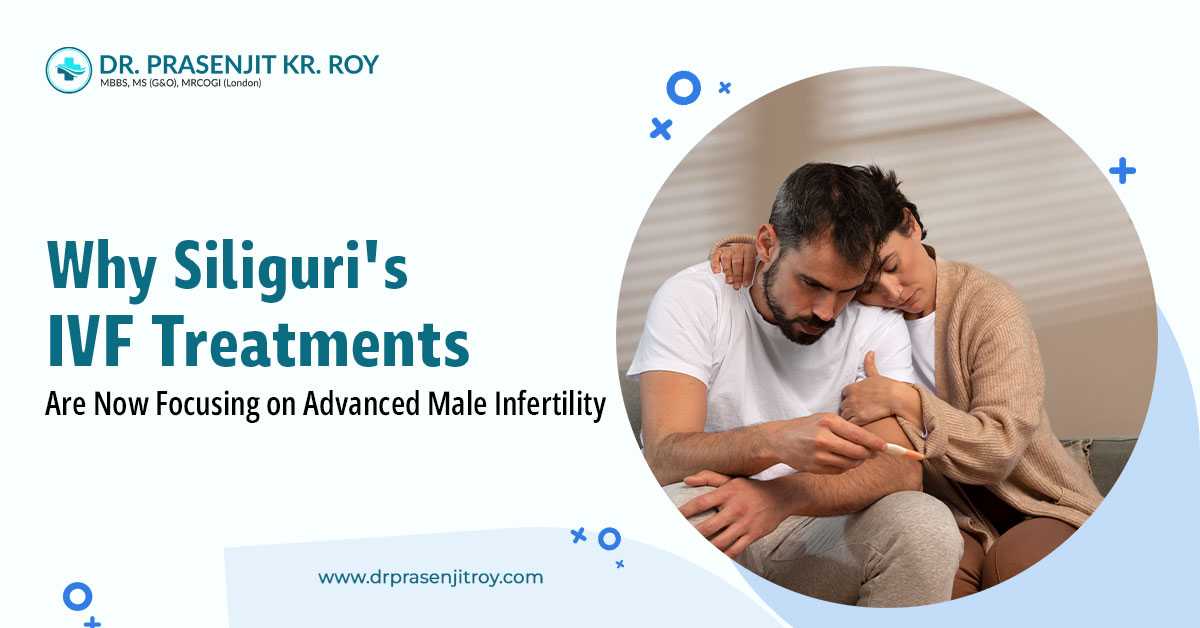Women’s health is not something that should be taken lightly or postponed for “when there’s time.” Yet, many women are taught to silently adjust to discomfort. From irregular periods to mood swings, from sudden weight changes to pelvic pain, concerns are often brushed aside with the hope that they will simply disappear. But the truth is, the body speaks long before a problem becomes serious. The real strength lies in listening early.
This is why consulting the best gyno doctor in Siliguri plays a powerful role in preventive health. A gynecologist does not just treat illness; they help you understand your body, maintain balance, prevent complications, and stay prepared for every phase of womanhood ahead.
Let’s explore this in a conversational, relatable way.
Your Body Changes, And That’s Completely Normal
Women go through many physical and emotional transitions:
● Puberty and the first menstrual years
● Academic or work stress
● Sexual health awareness
● Contraception choices
● Planning a pregnancy
● Post-childbirth recovery
● Perimenopause and menopause
Each stage comes with its own hormonal shifts. These shifts may bring changes in periods, energy, skin, mood, appetite, or sleep. Some changes are mild and normal; others may indicate early signs of conditions like PCOS, thyroid fluctuation, uterine fibroids, or reproductive concerns.
A gynecologist helps decode these changes so you don’t feel confused or overwhelmed.
Why Preventive Check-Ups Are More Important Than We Think
Most women visit a gynecologist only when discomfort becomes hard to ignore, severe cramps, heavy bleeding, infertility struggles, or breast changes. But preventive consultations allow early detection. And early detection is what protects long-term health.
For example:
● PCOS caught early can prevent future fertility complications.
● Cervical screenings help prevent serious cervical issues.
● Thyroid monitoring prevents metabolic and mood instability.
● Breast examinations detect lumps before they become dangerous.
When you know what’s happening inside your body, you can act confidently instead of fearfully.
Your Gynecologist Is Not Just a Doctor, They Are a Health Partner
Think of a gynecologist as a listener, advisor, medical expert, and health guide—all in one.
Teenage and Adolescence
Young girls may feel embarrassed discussing period pain, mood swings, or changes in their bodies. A gynecologist helps them understand what’s normal, what needs attention, and how to manage puberty confidently.
Adulthood and Reproductive Planning
Whether you want to avoid pregnancy safely or plan for a family in the future, guided medical advice protects your health. Gynecologists explain contraception options, fertility windows, and reproductive awareness respectfully and clearly.
Pregnancy and Maternal Care
During pregnancy, a gynecologist monitors both mother and baby. But beyond medical care, emotional reassurance matters too, especially for first-time mothers navigating mixed feelings of joy, fear, excitement, and responsibility.
Menopause & Beyond
Hormones shift again, bringing heat flashes, sleep issues, bone changes, and emotional fluctuations. A gynecologist helps women embrace this phase with balance, understanding, and personalized health strategies.
When Should You Visit a Gynecologist?
You should schedule an appointment if you experience:
● Irregular or extremely painful periods
● Periods that suddenly become too light or too heavy
● Breast tenderness, lumps, or discharge
● Painful intimate relations
● Vaginal itching, dryness, or unusual discharge
● Pelvic or lower back pain that comes and goes
● Difficulty conceiving despite trying for months
● Sudden weight gain, hair thinning, or acne flare-ups
● Mood fluctuations or fatigue that feel unusual
Your body does not change without reason.
Noticing the signs is the first step.
Getting clarity is the second.
What Happens During a Preventive Gynecological Visit?
A gynecologist usually begins with a simple conversation, How have you been feeling? What has changed recently? How are your periods?
Then, depending on age and need, they may recommend:
● A pelvic exam
● Ultrasound to check the uterus and ovaries
● Pap smear for cervical health
● Hormonal analysis
● Breast exam
● Thyroid or general blood profile
These are routine tests, gentle, guided, and aimed to reassure rather than alarm. There is nothing to fear.
Let’s Talk About Comfort, Because It Truly Matters
Talking about reproductive health can sometimes feel personal, sensitive, or emotional. That is why choosing a gynecologist who makes you feel respected, heard, and comfortable is essential.
You should feel free to ask:
● Is this pain normal?
● Why is my mood changing?
● What can I do for better cycle balance?
● How do I plan a pregnancy safely?
● How do I handle PCOS or hormonal fluctuations?
No question is silly.
There is no concern that is “too small.”
Your body deserves understanding.
Your Fertility Health Also Deserves Awareness
Even if you are not planning for pregnancy right now, knowing your fertility health early gives you freedom and confidence. Understanding ovulation patterns, ovarian reserve, and hormonal balance helps prevent future stress and uncertainty.
Fertility awareness is not pressure; it is preparedness.
Self-Care Is Not Complete Without Internal Health Awareness
Eating well, exercising, or skincare routines are great, but internal health forms the foundation. When your hormones and reproductive health are balanced, your skin, mood, digestion, sleep, and confidence also stabilize.
So, consulting a gynecologist is not only medical, it is emotional, personal, and empowering.
Conclusion
Your body is constantly communicating through symptoms, cycles, moods, and sensations. Instead of waiting for discomfort to escalate, preventive gynecological care gives you clarity, balance, and peace of mind. It helps you live with confidence rather than worry.
Instead of waiting for discomfort to escalate, preventive gynecological care offers assurance and clarity. It allows you to understand what your body is trying to tell you. It gives you the knowledge to respond with awareness, instead of fear. It shifts your approach from What if something is wrong? to I know what’s happening, and I’m taking care of myself.
If you are ready to understand your health better, support your body through every life stage, or simply want reassurance that everything is on track, you may consider consulting Dr. Prasenjit Kr. Roy for thoughtful, empathetic, and personalized women’s healthcare that respects your comfort and honors your well-being.





